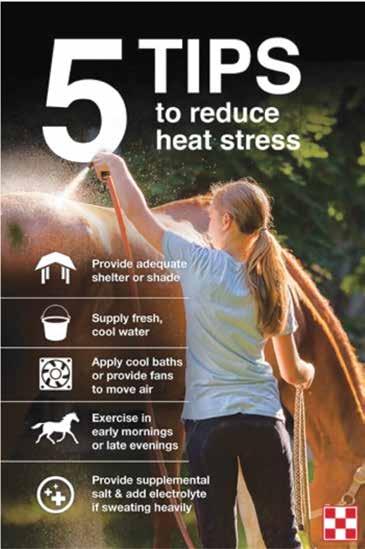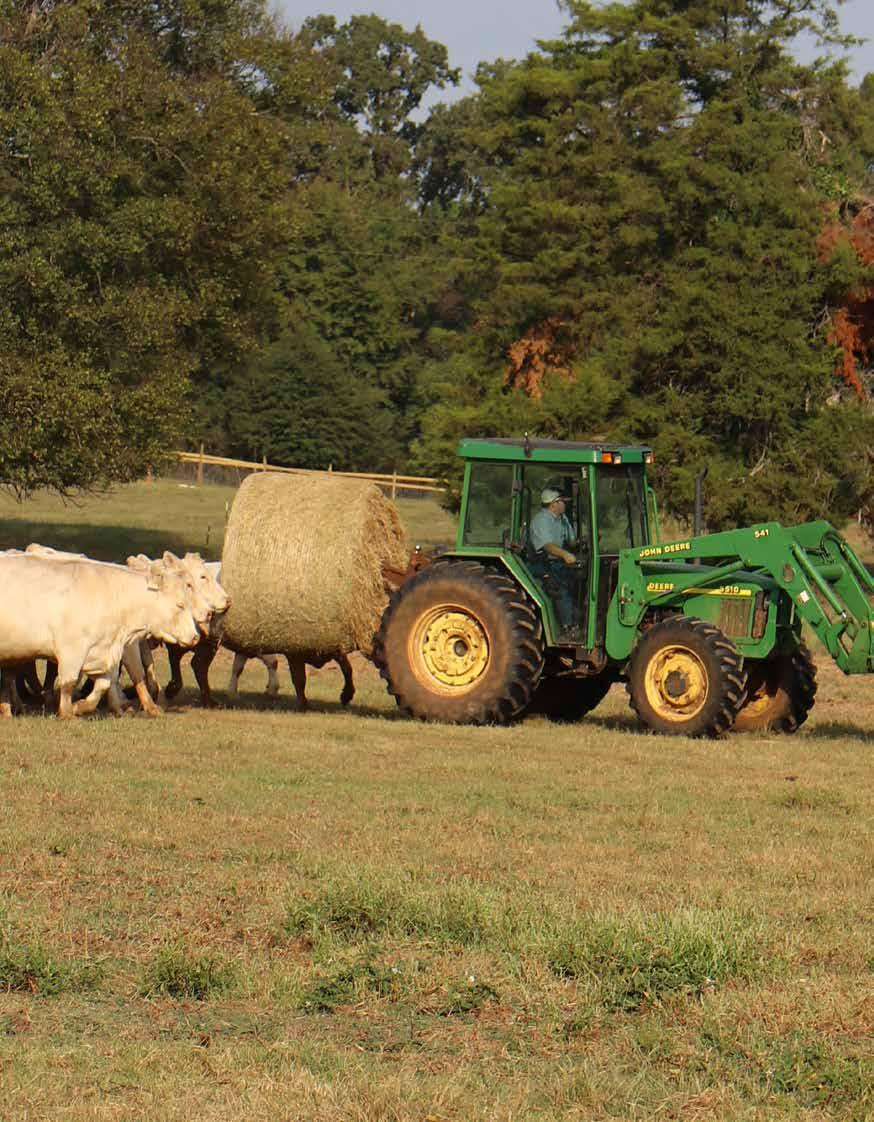
2 minute read
HOW TO KEEP HORSES COOL IN HOT WEATHER
AS SUMMER DRAGS ON, HEAT CAN BECOME A SERIOUS PROBLEM FOR MANY HORSES.
KELLY VINEYARD, M.S., PH.D.
Sweating is the primary way horses cool themselves. Experts believe that prolonged, consistently high sweat rates can lead to “exhaustion” of the sweat glands. In horses, this may result in anhidrosis, or the inability to produce sweat adequately. It is crucial to address anhidrosis and find other ways to keep horses cool because it can pose a serious health risk to horses in warm climates.
Here are a few tips to keep in mind when trying to keep your horses cool this summer.
FRESH, COOL WATER
Hydration is critical during hot weather, but poor water quality can severely limit your horse’s intake. Most horses don’t like to drink hot water, so it is best to provide fresh, cool water daily. Dark-colored troughs or buckets placed in direct sunlight will absorb heat and warm the water quickly.
Keep horse water troughs and buckets clean and free of algae to encourage drinking. Remember, it can be hard to see accumulated algae and debris at the bottom of a dark-colored trough. Another tip: overfill water buckets and troughs to provide moisture for your horse’s hooves, especially in dry climates.
Salt And Electrolyte Supplementation
Feeds do not contain enough salt to meet a horse’s daily sodium requirement. Therefore, an additional source of salt is always recommended. At a minimum, a salt block should be available free choice. However, horses are not natural lickers and may not lick enough voluntarily. Top-dressing their feed with 2 oz plain salt per day is a good way to ensure they get enough.
If there are no trees in your turnout areas, providing a run-in shed or even a fabric sunscreen as a horse shelter can make a big difference in helping to keep your horses cool.
In the “sweating season,” whether due to temperature or workload, salt should be switched to a quality electrolyte. This will supply important minerals like potassium and calcium, in addition to salt, that your horse loses through sweat. The best electrolytes will be mostly minerals, not sugar.
Summer Horse Shelter
We can all appreciate how much cooler it is under the shade tree in the middle of summer versus being out in the full sun, and your horse feels the same way. If there are no trees in your turnout areas, providing a run-in shed or even a fabric sunscreen as a horse shelter can make a big difference in helping to keep your horses cool.
Horses cool themselves primarily through evaporative and convective cooling. To help them, apply cool baths or use sprinklers to keep your horses more comfortable and to decrease their need to sweat as much. Moving air increases both convective and evaporative cooling. If the breeze isn’t blowing, provide a fan to move the air. Some farms even use large golf course fans to keep their horses cool in pastures. Finally, remember it may be more comfortable outside in the sun than inside a stuffy barn with poor airflow.
Exercise And Heat Stress In Horses

Metabolic heat from exercise is another primary heat source for horses; therefore, it is best to confine strenuous exercise to early morning or later evening hours when ambient temperature and humidity are the lowest. Alternatively, you can give yourself and your horse a break from hard training during the hottest summer months.
To avoid additional heat stress, postpone events such as vaccination, weaning, changing barns, moving horses between groups, etc. If any of these events must occur during the hottest days of summer, try to do them during the coolest hours of the day.
Even though summer can be a sweaty, uncomfortable time, these tips can help your horse stay healthy and happy year-round.











